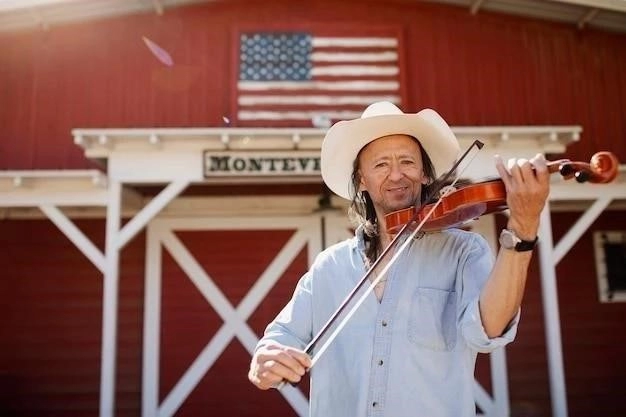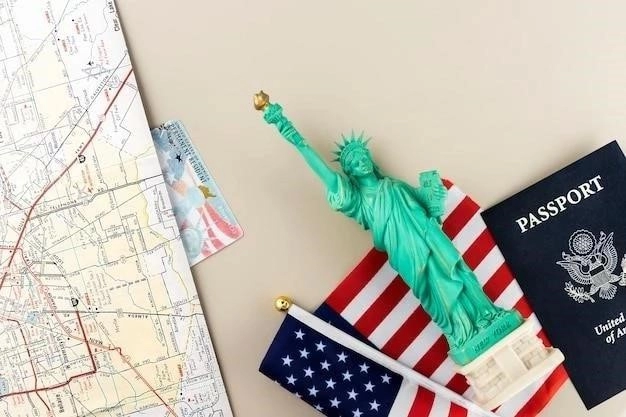American Literature: A Rich Tapestry of Voices
American literature, a vibrant reflection of the nation’s history and identity, resonates with a chorus of diverse voices. From the poignant narratives of early settlers to the introspective works of contemporary authors, it captures the essence of the American experience. Explore its themes of ambition, freedom, and the search for belonging, all interwoven into a rich tapestry of literary expression.
The American Dream: From Promise to Disillusionment
The quintessential American Dream, a beacon of hope and aspiration, has served as a pervasive theme throughout the nation’s literary history. From the early colonists’ pursuit of religious freedom to the modern-day immigrant’s quest for a better life, the allure of upward mobility and self-determination has been a driving force in the American consciousness. Literature, in its various forms, has provided a powerful lens through which to examine the complexities and contradictions inherent in this national ideal.
The early works of American literature often depicted the Dream with a sense of optimism and boundless possibility. The writings of Benjamin Franklin, for instance, extolled the virtues of hard work, thrift, and self-reliance as pathways to success. Similarly, Frederick Douglass’s autobiographical accounts of his escape from slavery and rise to prominence exemplified the transformative power of education and perseverance.
However, as America matured, so too did its literary representations of the American Dream. The late 19th and early 20th centuries witnessed the rise of literary realism and naturalism, movements that sought to portray the grittier realities of American life. Authors such as Theodore Dreiser, in his novel “Sister Carrie,” and Upton Sinclair, in his exposé “The Jungle,” exposed the harsh underbelly of industrialization, highlighting the struggles of the working class and the limitations of the Dream for those on the margins of society.
The Great Depression further eroded the facade of the Dream, giving rise to works of social protest and disillusionment. John Steinbeck’s “The Grapes of Wrath,” a poignant portrayal of the Joad family’s desperate migration westward, captured the plight of Dust Bowl refugees and the fragility of economic security. Similarly, Arthur Miller’s plays, such as “Death of a Salesman,” delved into the psychological toll of pursuing an elusive and often illusory dream, revealing the emptiness and despair that can accompany unfulfilled aspirations.

Contemporary American literature continues to grapple with the legacy of the American Dream, often deconstructing its myths and exploring its evolving meaning in a rapidly changing world. The pursuit of material wealth, once seen as a marker of success, is often juxtaposed with themes of personal fulfillment, social justice, and the search for identity in a society grappling with issues of race, class, and gender. From the immigrant narratives of Jhumpa Lahiri to the satirical works of David Foster Wallace, American literature continues to provide a vital platform for examining the ever-evolving relationship between the nation’s ideals and the realities of its diverse population.
Race and Identity in the American Landscape
The exploration of race and identity has been a constant thread woven through the tapestry of American literature, reflecting the nation’s ongoing struggle with its complex and often troubled history. From the earliest colonial writings to contemporary works, American authors have grappled with the legacy of slavery, the fight for civil rights, and the ongoing quest for equality and social justice. These narratives provide invaluable insights into the multifaceted experiences of diverse communities within the American landscape.
The slave narratives of the 18th and 19th centuries, such as those by Frederick Douglass, Harriet Jacobs, and Olaudah Equiano, stand as harrowing testaments to the brutality of slavery and the resilience of the human spirit. These firsthand accounts exposed the dehumanizing realities of forced labor, family separation, and the denial of basic human rights, fueling the abolitionist movement and forever shaping the nation’s conscience.

The Harlem Renaissance of the early 20th century marked a watershed moment for Black artists and writers, who used their creative voices to challenge prevailing stereotypes and celebrate African American culture and identity. Authors like Langston Hughes, Zora Neale Hurston, and Alain Locke explored themes of Black pride, urban life, and the search for cultural roots in a society rife with segregation and discrimination. Their works gave rise to a new era of Black literary expression, paving the way for future generations of writers.
The Civil Rights Movement of the mid-20th century ignited a surge of literary works that confronted the realities of racial segregation and the ongoing struggle for equality. Authors like Richard Wright, James Baldwin, and Ralph Ellison exposed the psychological and societal effects of racism, demanding recognition and empathy for the Black experience. Their powerful narratives, often characterized by anger, frustration, and a longing for social change, became catalysts for national dialogue and social reform.
Contemporary American literature continues to engage with issues of race and identity in nuanced and multifaceted ways. Authors from diverse backgrounds explore the complexities of multiculturalism, immigration, and the search for belonging in a rapidly changing world. From the works of Toni Morrison, who delved into the lingering trauma of slavery and its impact on African American lives, to the novels of Jhumpa Lahiri, which illuminate the immigrant experience and the challenges of cultural assimilation, American literature continues to reflect the evolving tapestry of race and identity in the American landscape.

The Quest for Self-Reliance and Individualism

The spirit of self-reliance and the celebration of individualism have been enduring themes in American literature, reflecting the nation’s historical emphasis on personal freedom, autonomy, and the pursuit of one’s own path. From the rugged individualism of the frontiersman to the introspective journeys of contemporary protagonists, American writers have explored the complexities and contradictions inherent in this national ethos.
The writings of Ralph Waldo Emerson, a key figure in the Transcendentalist movement of the 19th century, extolled the virtues of self-reliance, nonconformity, and a deep connection with nature. His essays and lectures, particularly “Self-Reliance,” urged individuals to trust their own instincts, reject societal pressures, and forge their own destinies. Henry David Thoreau, another prominent Transcendentalist, further embodied this spirit through his two-year experiment in simple living at Walden Pond, documented in his seminal work, “Walden.” Thoreau’s writings championed a life of deliberate simplicity, spiritual exploration, and a rejection of materialism.
The theme of self-reliance also found expression in the adventure tales of the American frontier. James Fenimore Cooper’s Leatherstocking Tales, featuring the iconic frontiersman Natty Bumppo, romanticized the life of the self-sufficient individual navigating the wilds of nature, relying on his own skills and cunning to survive. Similarly, Mark Twain’s “The Adventures of Huckleberry Finn” depicted a young protagonist’s journey of self-discovery and moral awakening as he navigates the Mississippi River, escaping societal constraints and forging his own sense of right and wrong.

In the 20th century, American literature continued to explore the theme of individualism, albeit with a more nuanced and introspective lens. Novels such as J.D. Salinger’s “The Catcher in the Rye” and Sylvia Plath’s “The Bell Jar” delved into the complexities of adolescence and the search for identity in a society perceived as suffocating and conformist. These works gave voice to the anxieties and alienation experienced by individuals struggling to define themselves amidst societal expectations.
Contemporary American literature continues to grapple with the evolving meaning of self-reliance and individualism in an increasingly interconnected and complex world. From the works of Cormac McCarthy, which often explore the limits of human endurance and the struggle for survival in harsh landscapes, to the novels of Jonathan Franzen, which examine the tensions between individual desires and societal pressures, American writers continue to probe the complexities of what it means to be an individual in a world grappling with questions of identity, belonging, and the search for meaning in an often chaotic world.

The Evolution of American Literary Styles

American literature, a vibrant reflection of the nation’s ever-evolving identity, has witnessed a dynamic evolution of styles and genres, each era leaving its indelible mark on the literary landscape. From the didacticism of the colonial period to the experimental forms of postmodernism, American writers have continually pushed the boundaries of language, form, and thematic exploration, reflecting the changing cultural, social, and political currents of their times.
The early American literary landscape was dominated by Puritanism, characterized by a focus on religious themes, moral instruction, and a plain, unadorned writing style. Works such as William Bradford’s “Of Plymouth Plantation” and Jonathan Edwards’s “Sinners in the Hands of an Angry God” exemplified this early style, emphasizing piety, divine providence, and the importance of spiritual salvation. As the nation transitioned into the 18th century, Enlightenment ideals of reason, logic, and individual liberty began to influence American writing, giving rise to a more secular and politically charged literature.
The 19th century witnessed the emergence of Romanticism, a literary movement that celebrated imagination, emotion, and individualism. Authors such as Nathaniel Hawthorne, Edgar Allan Poe, and Herman Melville explored themes of guilt, sin, and the darker aspects of human nature, often employing symbolism, allegory, and Gothic elements in their works. Transcendentalism, a distinct offshoot of Romanticism, emerged during this period, emphasizing self-reliance, intuition, and a spiritual connection with nature, as seen in the works of Ralph Waldo Emerson and Henry David Thoreau.
The late 19th and early 20th centuries ushered in the era of Realism and Naturalism, literary movements that sought to portray the realities of American life with greater objectivity and attention to detail. Authors such as Mark Twain, Stephen Crane, and Theodore Dreiser depicted the lives of ordinary people grappling with social issues, economic disparities, and the darker aspects of human behavior. Their works often employed vernacular language, gritty realism, and a focus on social commentary.
Modernism, emerging in the aftermath of World War I, marked a radical departure from traditional literary forms and conventions. Authors such as Ernest Hemingway, F. Scott Fitzgerald, and William Faulkner experimented with stream-of-consciousness narration, fragmented structures, and ambiguous endings, reflecting the disillusionment and uncertainty of the modern world. Postmodernism, which emerged in the latter half of the 20th century, further challenged traditional notions of narrative, language, and meaning, often employing irony, metafiction, and intertextuality to explore themes of identity, consumerism, and the fragmentation of reality.










